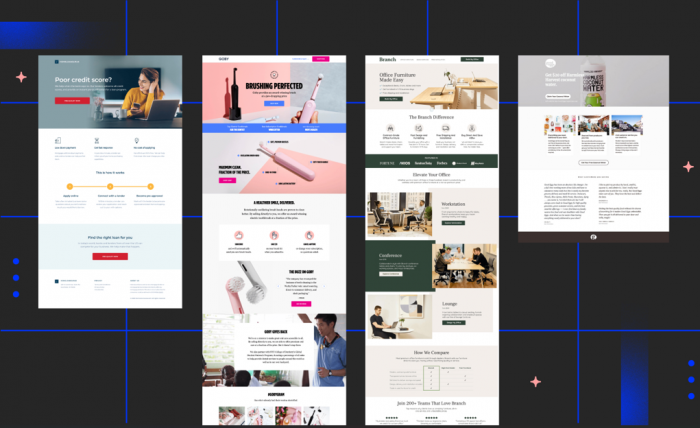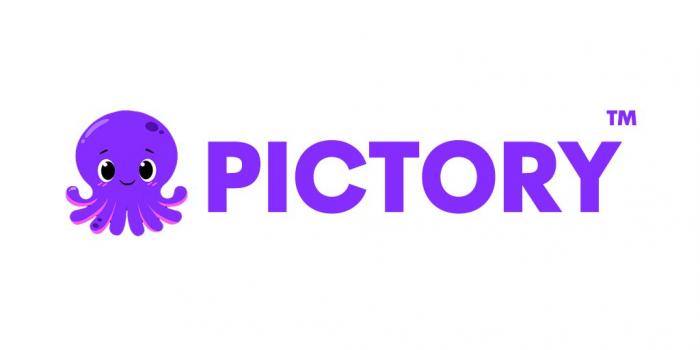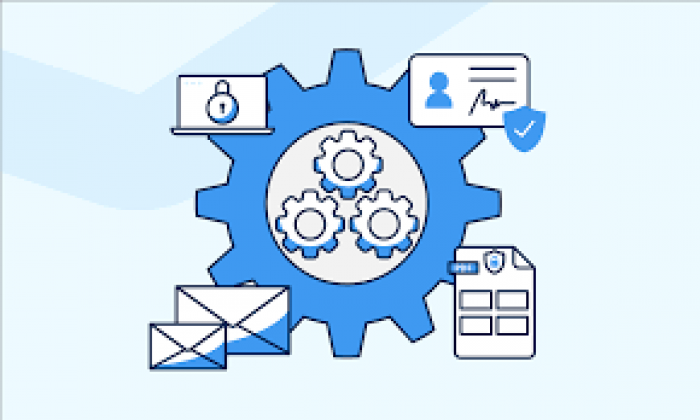Want to improve your SaaS SEO? This article breaks down simple SaaS SEO marketing strategies that work with AI, designed to enhance your search rankings and online visibility.
Leveraging AI for Keyword Research
Keyword research is the bedrock of any successful SEO strategy, especially in the competitive SaaS industry. With AI algorithms, we can now take keyword research to a whole new level, ensuring our content is not just relevant but also highly discoverable by our target market. AI marketing tools analyze user behavior patterns to deliver insights into relevant keywords that align with the problems our products solve, thus enhancing our search engine rankings.
Gone are the days of traditional SEO where volume was king; today’s AI-driven keyword insights focus on content inclusion and search intent. Strategically using keywords during the decision phase helps avoid competition-related pitfalls and targets keywords that genuinely resonate with our audience.
Let’s explore how AI tools like Google Keyword Planner can aid in this endeavor.
Using AI Tools like Google Keyword Planner
In the realm of search engine optimization, AI tools such as Google Keyword Planner and Ahrefs have become indispensable. These tools provide semantically related and intent-focused keyword suggestions, making our keyword research more effective and efficient. For instance, identifying long-tail keywords like ‘project management tool for architects’ can help us tap into niches with lower competition and higher relevance.
Moreover, studying competitor sites for underutilized niches and reviewing customer pain points can reveal profitable target keywords that align with our content marketing strategy. Leveraging these AI marketing tools allows us to scale our marketing efforts, drive organic traffic, and create a winning SaaS SEO strategy.
Understanding Search Intent with Natural Language Processing
Understanding search intent is crucial for creating content that meets the specific needs of our audience. Natural Language Processing (NLP) aids in interpreting user queries, ensuring our content is not only relevant but also highly aligned with user intent. Categorizing user intent allows us to tailor our content to match the exact needs of searchers, enhancing our search optimization efforts.
NLP helps us move beyond mere keyword research to truly understand the nuances of user behavior. This allows us to create content that resonates with our audience, driving better engagement and improving our search engine rankings.
With AI and NLP, we can ensure our SaaS marketing AI strategies are both strategic and effective.
Enhancing On-Page SEO with AI
On-page SEO is where the magic happens, and AI tools are here to make it even more magical. AI algorithms can automate the identification of on-page optimization opportunities, enhancing content relevance and SEO performance. Keeping our content updated and offering unique insights ensures our pages stand out in search engine rankings.
Creating high-quality, informative content is essential for SEO, but it’s not just about keywords. AI-powered content optimization tools can help us analyze user behavior patterns and content performance, making real-time adjustments that enhance user experience and drive organic traffic.
Let’s delve into how AI can power our content optimization efforts.
AI-Powered Content Optimization
AI algorithms play a critical role in analyzing content quality by evaluating various factors and ensuring adherence to SEO best practices. For example, tools like Clearscope and MarketMuse help by:
- Identifying improvement areas in existing content
- Providing real-time suggestions for optimizing headlines
- Structuring articles effectively
- Enhancing readability
This not only improves search rankings but also increases user engagement and conversion rates.
Through natural language processing, AI helps us understand user intent, leading to the creation of more relevant and engaging content. Continuous content optimization using AI ensures our content strategy remains effective and aligned with user needs, driving better results across our marketing efforts.
Improving Meta Descriptions and Titles
Meta descriptions and titles play a crucial role in search engine optimization by providing information to Google about our pages, thereby increasing clicks. A compelling meta title should convey what the user will gain after clicking, addressing their goals and pain points to enhance relevance.
AI tools can automate the creation of meta descriptions and titles, ensuring they are optimized for search engine rankings and user engagement. For instance, a meta description for AI Search Optimization services might read: ‘Get found with our AI Search Optimization (AISO) services,’ effectively summarizing the benefits while including target keywords.
Automating Technical SEO Tasks

Technical SEO is the backbone of a high-performing SaaS website, and AI tools can automate many of these crucial tasks. From ensuring ingestibility to automating repetitive tasks, AI allows marketers to focus on strategy rather than getting bogged down by technical details. By improving the functionality of our website, we can impress both audiences and search engines, driving better search engine rankings.
With AI-driven technical SEO audits, we can quickly identify and prioritize issues, making it easier to allocate resources for fixes. This not only enhances site performance but also boosts visibility and rankings in search results.
Let’s explore how AI can help us conduct thorough technical SEO audits.
Conducting AI-Driven Technical SEO Audits
AI tools can rapidly identify various technical issues on our website, such as broken links, crawl errors, and other factors that hinder search engine performance. By conducting AI-driven audits, we can prioritize these issues and allocate resources efficiently, ensuring our website’s technical prowess. This proactive approach enhances our site’s visibility and search engine rankings.
These audits assess multiple factors, providing us with a comprehensive understanding of our site’s technical health. By resolving identified issues, we can improve site performance, making it easier for search engines to crawl and index our content.
Enhancing Site Speed and Performance
Site speed is a critical factor in search engine optimization, impacting both user experience and search engine rankings. Slow page loading times can lead to higher bounce rates and negatively affect our overall search ranking. AI tools can help us identify and resolve issues that slow down our site, enhancing performance and user satisfaction.
Improving site speed not only enhances the user experience but also provides a competitive edge in search optimization. This ensures our saas business website performs optimally, driving better engagement and higher conversion rates.
Creating High-Quality Content with AI
Creating high-quality content is at the heart of any successful content marketing strategy, and AI can significantly enhance this process. Clear communication is vital to ensure our content resonates with audiences of varying levels of awareness. Leveraging AI increases content output while maintaining a relatable brand voice, ensuring our content is both engaging and informative.
AI tools can recommend trending topics and generate content ideas that align with current user interests on social media platforms, enhancing audience alignment and engagement.
Let’s delve into how AI can help us generate content ideas and personalize content for different audience segments.
AI-Generated Content Ideas
AI tools can generate topic ideas and outlines tailored to our audience’s preferences, streamlining the content creation process. By analyzing trending topics, these tools can provide valuable insights that help us create content that resonates with our target audience, boosting engagement and driving traffic.
For instance, AI-powered content strategy tools can suggest relevant topics and provide structured outlines, making it easier for us to produce high-quality content consistently. This not only enhances our content marketing efforts but also ensures we stay ahead of industry trends.
Beyond blogs and articles, AI tools can also assist SaaS companies in creating supporting sales materials such as pitch decks, case studies, and presentations. For example, analyzing what resonates with investors or potential enterprise clients allows marketers to create more persuasive assets.
By reviewing SaaS pitch deck examples from MADX, teams can understand how to structure storytelling and data visualization in a way that drives both credibility and conversions. Pairing these insights with AI-generated content ideas ensures a consistent brand message across all marketing and sales touchpoints.
Personalizing Content for Different Audience Segments
Segmenting content based on customer demographics and engagement data increases relevance and boosts engagement rates. AI can provide insights to improve content readability and tailor content to meet the specific needs and preferences of different audience segments. This personalized approach enhances engagement and conversions, making our content marketing strategy more effective.
Leveraging AI for tailoring content helps effectively reach and resonate with various audience segments, leading to enhanced interactions and conversions. This ensures our content strategy is both strategic and impactful, driving better results across our marketing efforts.
Utilizing AI for Link Building
High-quality backlinks are a crucial factor in search engine optimization, signaling to search engines that our website is trustworthy and improving its ranking. AI-driven link building enhances our ability to identify and target high-quality backlinks efficiently, maximizing backlink acquisition and improving domain authority.
Leveraging AI streamlines our link-building efforts, ensuring we secure valuable backlinks that enhance our search engine rankings and drive organic traffic. Let’s explore how AI can help us identify link-building opportunities and automate outreach campaigns.
Identifying Link-Building Opportunities with AI
AI tools can analyze competitor backlinks to uncover new opportunities for link building, providing us with valuable insights that enhance our SEO effectiveness. By leveraging AI algorithms, we can identify prospective websites for backlink collaboration, ensuring we target high-quality backlinks that improve our domain authority.
Industry trend analysis with AI helps us find prospective websites for backlink collaboration, ensuring our link-building efforts are strategic and effective. This not only enhances our SEO but also fosters valuable partnerships within our industry.
Automating Outreach Campaigns
Automated outreach can streamline the process of securing backlinks from authoritative websites, simplifying the process of reaching out to multiple prospects simultaneously. This increases the chances of securing valuable backlinks and enhances our link-building outcomes through more consistent engagement.
Automating outreach saves time and improves our link-building outcomes, ensuring our marketing efforts are both efficient and effective. Automated follow-ups in outreach campaigns can significantly increase response rates from potential link partners, maximizing our backlink acquisition.
Integrating AI with Marketing Automation

Integrating AI with marketing automation platforms helps streamline repetitive marketing tasks, improving effciency and consistency in our marketing efforts. Automating routine tasks with AI allows marketers to focus on strategy and creative aspects, enhancing overall performance and effectiveness within marketing teams.
The integration of AI with marketing automation leads to enhanced performance and effectiveness, ensuring our messaging aligns across channels and drives better results. Let’s explore how AI can streamline email marketing campaigns and enhance customer journey mapping.
Streamlining Email Marketing Campaigns
AI can streamline the outreach process by personalizing communication based on recipient behavior, ensuring our email marketing campaigns are accurately targeted. Segmenting the contact list and analyzing recipient behavior allows us to tailor our account based marketing campaigns to meet the specific needs and preferences of our audience.
Automated email marketing simplifies audience management and follow-up messaging, ensuring our campaigns are both efficient and effective. This personalized approach enhances engagement and drives better results in our email marketing efforts.
Enhancing Customer Journey Mapping
A customer journey map visually represents each phase a customer experiences with our SaaS product, highlighting their needs and challenges from initial contact to becoming advocates. Unlike marketing funnels that focus on brand actions aimed at conversions, customer journey maps emphasize customer experiences and interactions with our brand at the customer journey stage, illustrating the sales funnel.
Involving multiple teams—marketing and sales teams, customer support, and our sales team—allows us to gather diverse insights about customer interactions and create an effective customer journey map.
Regularly reviewing and adjusting the map based on customer behavior data helps us identify which touchpoints are effective and which need refinement, enhancing the overall customer retention and retain customers customer lifetime value.
Monitoring and Analyzing SEO Performance with AI

Tracking core SEO metrics is essential for measurement and ongoing optimization. With AI tools, we can monitor SEO performance across various platforms, providing actionable insights that enhance our optimization strategies. Analyzing user behavior with AI reveals opportunities to improve the customer experience and drive better results.
AI tools assist in tracking ai seo performance in real-time, allowing us to make immediate adjustments to our marketing efforts and ai systems. This proactive approach ensures our strategies remain effective and aligned with evolving search engine algorithms and user behavior, driving our SaaS SEO efforts forward.
While AI provides data-driven insights and automation, collaborating with experienced SEO professionals can further strengthen the strategy. These professionals bring the ability to interpret complex patterns, align AI findings with broader business goals, and apply creative problem-solving that algorithms alone cannot achieve. By blending AI precision with human expertise, SaaS businesses can implement smarter SEO roadmaps that deliver sustainable long-term growth.
Using Predictive Analytics for SEO
Predictive analytics refers to the use of historical data and analytics to forecast future trends in SEO, enabling us to adjust our strategies proactively. Leveraging insights from predictive analytics allows us to make informed adjustments to our SEO strategies, optimizing for predicted shifts in search engine algorithms and user behavior.
Data-driven decision-making supported by predictive analytics is crucial for staying competitive in the evolving landscape of SEO. This allows us to anticipate and prepare for future trends, ensuring our SEO strategies remain effective and impactful.
Real-Time Performance Tracking
Real-time tracking with AI allows us to make immediate adjustments in our marketing strategies based on performance data. This ensures our efforts are always aligned with current trends and user behavior, driving better results in our SEO performance.
Real-time performance tracking ensures our marketing strategies remain agile and responsive, enhancing our competitive edge in the SaaS industry. This proactive approach allows us to stay ahead of the curve and continuously optimize our SEO efforts.
Building Trust with AI Transparency
Transparency in the use of AI is crucial for building trust and credibility with customers. Providing clear explanations about our AI tools and how they make decisions fosters a sense of trust among our customers. Implementing effective data privacy practices further enhances our brand’s reputation and ensures compliance with regulations.
AI models tend to favor content that appears authoritative and trustworthy, making transparency even more important. Let’s explore how we can communicate our AI use to customers and address data privacy concerns.
Communicating AI Use to Customers
Companies should:
- Provide clear explanations about their AI tools to enhance customer understanding and trust.
- Be transparent about AI use, which is crucial for building customer trust and confidence.
- Use simple language and relatable examples to communicate effectively.
Every claim made about AI tools should be substantiated with data and external references to maintain credibility. Effectively communicating our use of AI builds trust and retains customers, ensuring they feel confident in our AI-driven marketing efforts.
Addressing Data Privacy Concerns
AI in digital marketing raises several significant privacy concerns that businesses must be aware of. To maintain customer trust, it’s crucial to prioritize transparency in how we collect and manage customer data securely. Addressing these privacy concerns builds customer confidence and strengthens trust in our AI-driven marketing environment.
Significant privacy concerns related to AI include data collection, tracking, and the potential misuse of personal information. By implementing robust data privacy practices, we can ensure our customers’ data is protected and build a reputation for trustworthiness.
Summary
In conclusion, leveraging AI for SaaS SEO marketing strategies in 2025 offers numerous benefits, from enhanced keyword research and on-page optimization to automated technical SEO tasks and high-quality content creation. By integrating AI with marketing automation and maintaining transparency in our AI use, we can build trust with our customers and drive better results across our marketing efforts.
As we continue to navigate the ever-evolving digital landscape, staying ahead of the curve with AI-driven strategies will be crucial for success. Embrace the power of AI, and let it transform your SaaS SEO marketing approach, driving your business to new heights.
Post Comment
Be the first to post comment!





